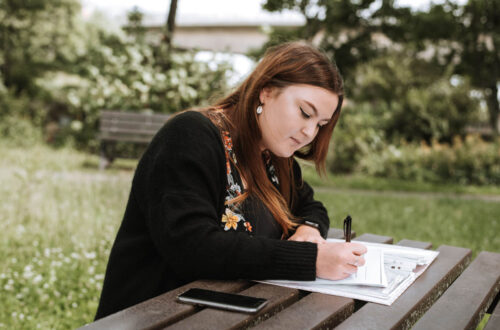Tired of the fence
My husband is a perpetually hopeful person. He sees an ideal, commits himself to it, and neither hell nor high water can shake him from it. I tend to be more of an equivocater. I see the pros and cons, and perpetually evaluate: is it going well? Or not?
It’s a mix that makes for some interesting discussions lately on the subject of homeschooling. Try though I might, and recognize its strengths though I might, I’ve been thinking a lot lately about whether to continue next year.
Here’s a list of our reasons for homeschooling. A friend recommended that I make one, and return to it in moments of doubt to assess how we’re faring. It gives me some solid criteria to consider. This is a personal list, not a “recommendation” for anyone else:
- Building a relationship. I wanted to hit my parenting insecurities head-on and not turn my kids over to someone else until such time as I felt like Mrs. Good Parent.
- Nurturing a Christian worldview the way my Christian liberal arts education did for me as a college student.
- Fewer videos, more books. Every day in public school kindergarten, they watched movies. No thanks.
- The attractiveness of the classical education model (as laid out in The Well-Trained Mind). I really liked the way we could go through the entire cycle of history 3 times, once in each stage of the trivium, in increasing depth each time.
- Story-based learning. With my training, it seemed like a no-brainer that this would be something I would enjoy, and be able to pass that enjoyment along.
- One-one instructional time, less wasted time, more energy for creative pursuits and play.
- Freedom to design our schedule.
- A different model of socialization than the public school affords, and one that prioritizes different values.
- As my husband (along with Dorothy Sayers) puts it, we want our children to learn how to learn, how to think. We feel this can happen better in a non-institutional setting.
I wouldn’t say we’re doing badly on any of these things. The issue isn’t whether we’re meeting our original criteria. It’s that new questions have arisen outside of these original criteria. In a nutshell, though I’m convinced I’m absolutely the best mother for my children, I’m not always convinced I’m the best teacher.
Here are some things that were nowhere on the landscape when I was considering homeschooling as a possibility, but that haunt me now that I’m actually doing it:
- I don’t always push them enough. Other times I push too hard and make them afraid to fail.
- I’m terrible at redeeming the time; they have lots of free time, and sometimes I wonder if it’s making them undisciplined or undirected. Is it good to have so much time to make tiny clay animals? Or should it be broken up with more scheduled commitments?
- There are some veins of the homeschool community that I just don’t relate to. But for my children to have any kind of social life, I need to be able to jump in and engage with other homeschoolers.
- Does having me as both mother and teacher enlarge their world — or shrink it to my dimensions?
- I taught college English. Teaching early elementary students one-on-one is a whole different ballgame. Just up the street is a school full of qualified professionals. A friend certified in early elementary education who homeschools her kids tells me that she doesn’t value her professional training, because it didn’t give her any of the specific, practical knowledge she really needed in the classroom. But I still wonder if they would do a better job than I do. They have more OJT.
- Are the kids getting all they need? Is this what God is calling me to do — or is he calling us to release them to the instruction of the school system, which mirrors the world they will live in all their lives, and build a strong and loving and stimulating family and church life around it? It’s imperfect — but so are we. Does faith mean pressing on, or releasing?
My husband loves the idea of homeschooling. He’s committed to it. It drives him to distraction when I come home from my morning walk, as I did this morning, and say, “Is this really the best thing for our children? I really want the best thing for our children.” To him I come across as someone blown and tossed by the winds of emotion, unseated from the noble charge by the first bad day that comes along.
I’m not a flake. But he’s right that I’m not as committed as he is. I lack a deep inner conviction about what’s right, and so far my prayers haven’t brought me any closer. It’s a subject you can make good arguments for on both sides. What I need is a perspective that breathes life decisively into one side or the other. We’re not going to switch the kids back and forth. If they go to public school, that’s that; we’re not going to hopscotch back and forth or around to different schools.


